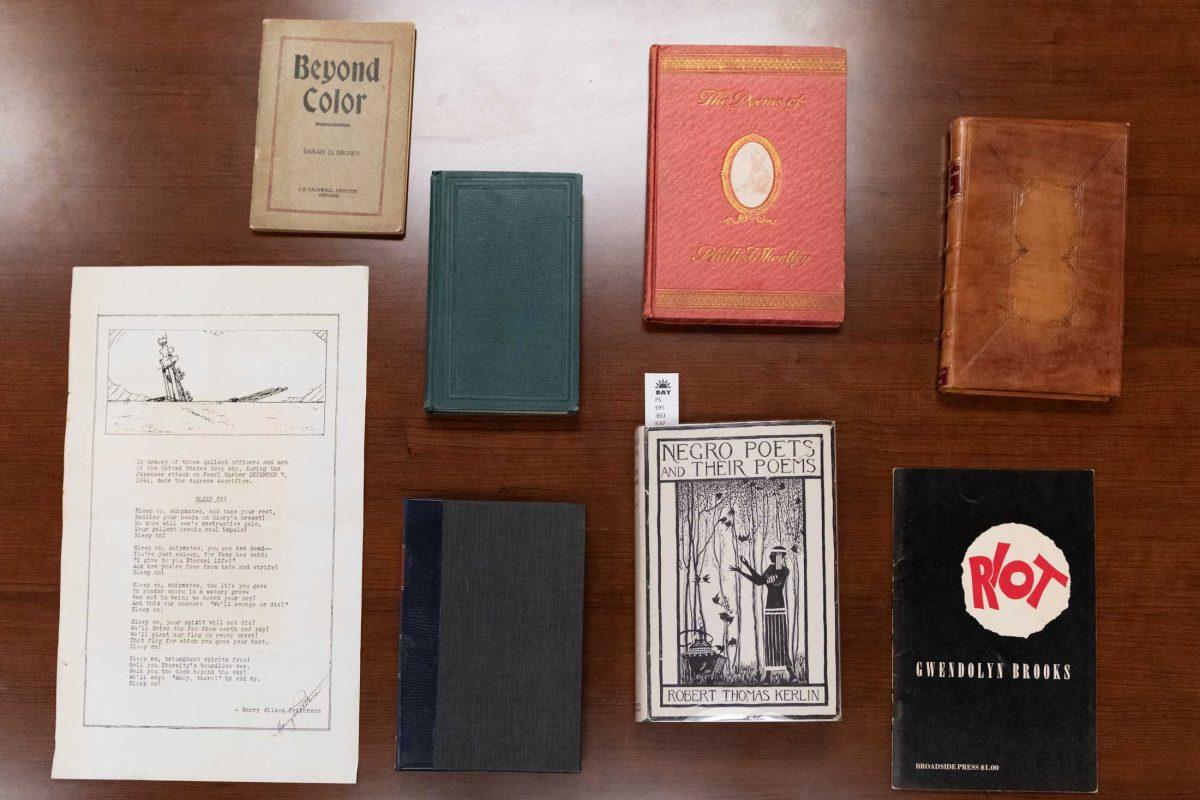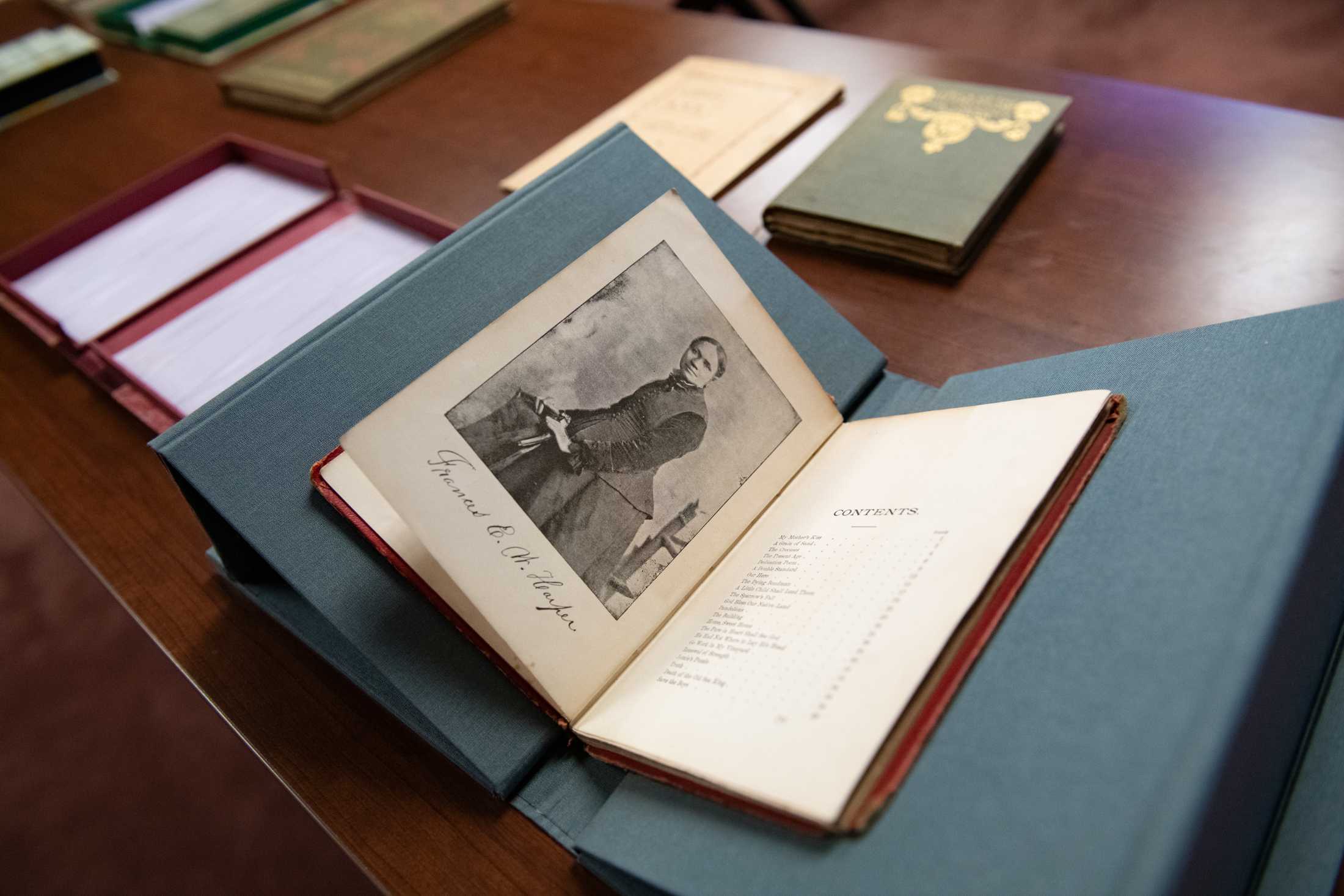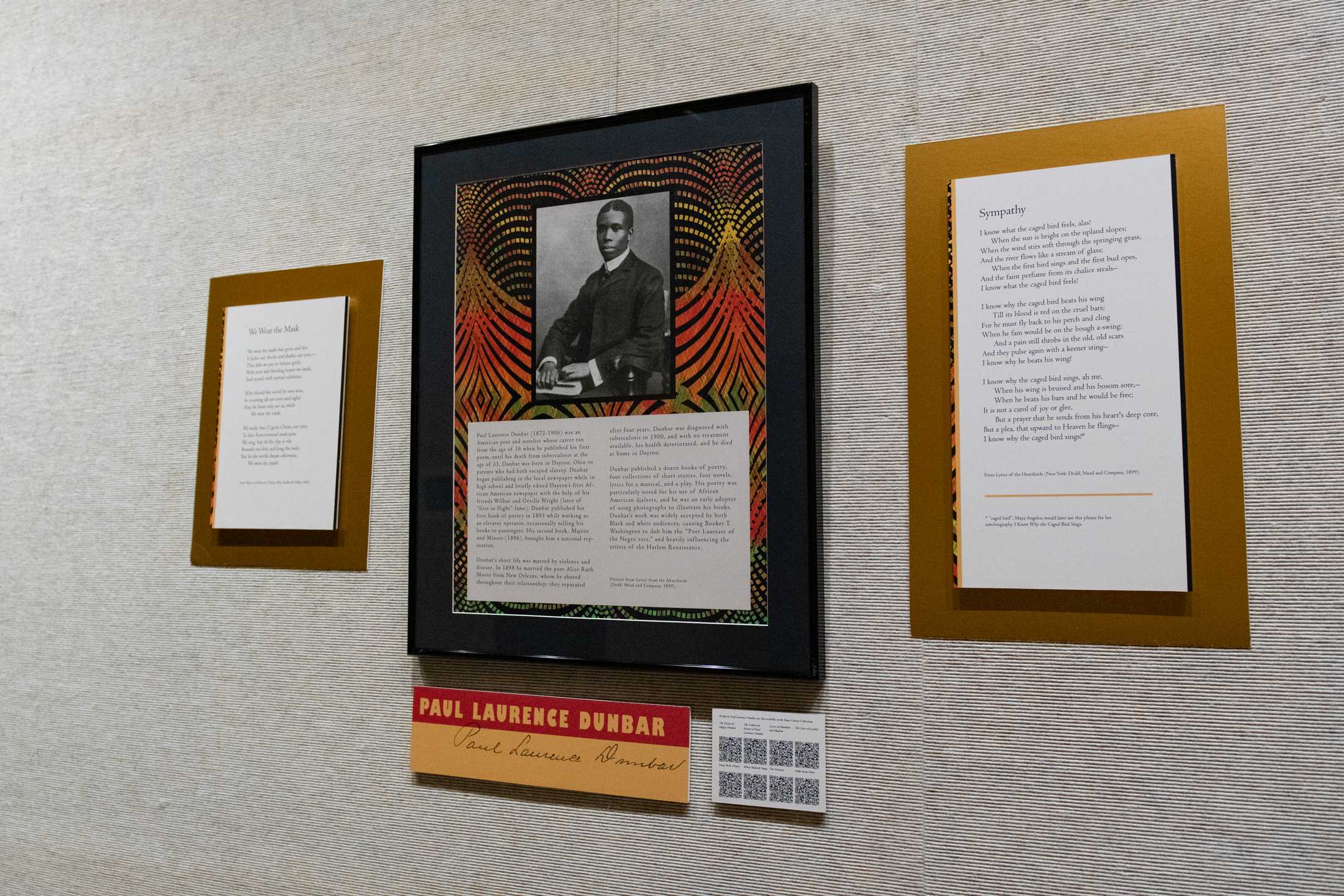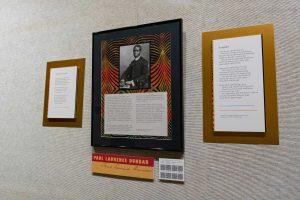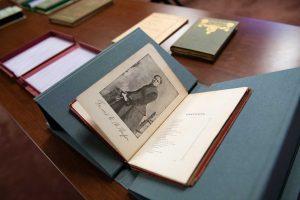Untapped history is resting at LSU.
The Wyatt Houston Day Collection of African American Poetry is an archival collection of more than 800 pieces of work by authors such as Phillis Wheatley, Gwendolyn Brooks and Langston Hughes.
The pieces in the Day collection feature materials from the early 18th century, the Harlem Renaissance and the Black Arts Movement. Some of the pieces even contain hand-written messages or signatures from the authors.
Part of the collection is now open for viewing on the first floor of Hill Memorial Library in honor of Black History Month.
“There are going to be scholarly and cultural connections made by students and professors that we can’t anticipate,” said John Miles, curator of books at Hill Memorial Library.
But one problem could be delaying this process of unburying the past. Few LSU students and faculty have interacted with the collection since LSU Libraries Special Collections acquired it in February 2022.
READ MORE: Students work for reform with Tiger Prison Project: ‘You can really make a difference’
The collection is generally a “too well-kept secret,” Miles said with pieces from the collection lined up next to him on a polished shelf.
Miles said Hill Memorial Library hosted a poetry reading with The Society of African and African American Studies, or SAAS, in 2022 that featured some poets from the collection. He said he hopes to add books from the Day collection into the curriculum for an introductory class for humanities and social science majors.
Stephen C. Finley, inaugural chair of the LSU African and African American Studies Department, said the answer to connecting students—particularly Black students—to the collection is in LSU’s backyard.
While Hill Memorial Library has held classes and events, Miles said he would like to see more use of the collection.
“AAAS has been a program since 1994. I mean who else is better to utilize that kind of resource than faculty whose very research is focused on the lives and experiences of African and African Americans… It’s not just a focus of ours. It’s what we do,” Finley said.
READ MORE: Opinion: The current Republican party is nothing but partisan chaos
With more than 800 books, the collection offers an expansive opportunity for research and study for students and faculty.
“I’ve written about the esoteric nature of Harlem Renaissance literature. I’ve published on that. And yet, nobody asks us when it comes to these kinds of collections,” Finley said.
It’s easy to automatically think about English, history or master of fine arts programs when it comes to catalogs of literature Finley said. But, other applications come into play when dealing with such tangible glimpses into the past.
“When the university wants to know about hurricanes or something that impacts Louisiana, they tap their own scholars first. That’s not necessarily our experience when it comes to the kind of work we do,” Finley said.
During the arrival of the collection, Finley said AAAS had just become a department. AAAS Librarian Narcissa Haskins did some rollout work with the archive around this time as well. However, Finley said he was on sabbatical leave and is unaware of when or how Haskins delivered the news of the collection to the rest of the department.
Miles said the day he flew to New York to retrieve the Day collection was “a rare book emergency.”
“We needed to take possession of at least some part of it by the end of the year. So, I flew up with some clothes in a backpack and my carry-on,” Miles said.
Haskins said Hill Memorial Library reached out to her for help with the announcement of the collection. She chose specific books to showcase for camera crews and did some interviews, she said.
“From purchase to getting it organized and the process of getting it cataloged, that takes a long time,” Haskins said.
Haskins said she looks forward to connecting with Miles in the future to discuss projects or events that could showcase the collection.
Miles said one professor is at the forefront of using the collection. Casey Patterson, an assistant professor in the LSU English department since the fall, said he plans to encourage student engagement by using the collection in his classes as much as possible.
READ MORE: ‘No Matter What Kind of Black You Are’: Local artists showcase the Black experience
“Knowing that there was this huge new resource at the university and that it hadn’t really been combed through by scholars yet, I thought it was a great opportunity for students at LSU to do original research,” Patterson said.
Patterson said he has been talking to a group of archival scholars at the City University of New York who could possibly bring a team of graduate students to LSU to study the collection.
Finley said no one intends to let the collection sit unused. Most people involved seem to share the common goal of putting the collection to use and making groundbreaking connections. He said the AAAS Department has ways and expertise to make this happen.
“Especially if these faculty members are doing this kind of research where they could use undergrad and grad students as research assistance or support as well,” Finley said.
Hundreds of works by Black authors on LSU’s campus wait to be explored. There are Black scholars across multiple fields who are ready to break down the walls that separate them from the people that came before. Now it’s time to start making the connections.
“There are some amazing poets in this collection,” Miles said. “But some of the real wealth in the collection comes from the people you haven’t heard of.”
All the materials from the Day collection are available by request to LSU students, as well as the general public, either in person at Hill Memorial Library or online through the LSU Libraries Catalog. The complete collection will be on display on the two gallery floors of Hill Memorial Library starting April 15, for National Poetry Month, until Aug. 30.


